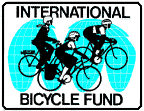Writing A Successful Letter to the Editor
WE WOULD LOVE
YOUR SUPPORT!
Our content is
provided free
as
a public service!
![]() IBF is 100%
IBF is 100%
solar powered
![]()
Letters-to-the-editor can be an important medium for getting you message out:
- Readership surveys show that these letters are among the best read feature in the newspaper.
- It can be one of the largest audiences you will ever address. And it includes politicians and civic leaders.
- Your readers are a cross section of society. You won't just be preaching to the choir!
- Few people have the dollars to otherwise get this type of publicity.
Here are some suggestion which can help in writing the kind of letter that is most likely to receive favorable consideration on the editorial desk:
- If possible, use a typewriter or printer, and double space the lines. Write only on one side of the paper. If you have no computer or typewriter, write with ink, plainly and neatly. Do not crowd words or lines.
- Express your thoughts and positions as clearly and concisely as possible. Use as simple words as possible. Short word, short sentences, short paragraphs make for easier reading. Editors usually prefer letters of no more than 200 or 250 words, although longer letters may be accepted if they are thought to have sufficient reader interest.
- Confine every letter to only one issue. It should be timely and newsworthy.
- Carefully plan your first sentence. Aim to make it short and interesting.Especially if you communicating to criticize, it is often desirable to start with a note of appreciation, agreement or praise about some related issue.
- If you write to criticize, begin with a word of appreciation, agreement or praise.
- Avoid violent language. A calm, constructive presentation of your thought is more persuasive than ranting and more likely to be published -- which is the real objective. It is possible to be frank and friendly.
- Help supply the truth that may be omitted or slanted in reporting the news or editorializing on it. Give argument(s) to support the position you are advocating. Focus on the topic and the key points you wish to make. If there are a large number of points that can be made about the topic you may want to hone in on the two or three strongest arguments.
- Relevant personal experiences and personal anecdotes are very persuasive, so include them.
- Don't hesitate to use a relevant personal experience to illustrate a point.
- If there is a problem that requires remedial action, show your willingness to work for a solution. If possible, request a specific action from the official.
- Bring more judgement to bear upon the issue confronting the community, the nation and the world. Appeal to the reader's sense of fair play, justice and mercy.
- Don't be merely critical; end your letter with some constructive suggestion and a pleasant and positive tone.
- You can make appropriate changes in your letter and send it to editors of other newspapers. Always send original copy. (Many newspapers have a policy against publishing letters which are also sent to other papers.)
- Always sign your name and give your address. You can use a pen name or initials for publication, but the editor must know the source of the letter.
- Don't give up looking for your letter too soon. It may not appear for two weeks or longer. Don't be discouraged if your letter is not printed. It reached the editor and that is worth something. Try again when it is appropriate. Even if only one in ten is accepted, you have reached an audience large enough to make your effort worth while. You score will probably be better than that.
Home | About Us | Contact Us | Contributions | Economics | Education | Encouragement | Engineering | Environment | Bibliography | Essay Contest | Ibike Tours | Library | Links | Site Map | Search
![]()
The International Bicycle Fund is an independent, non-profit organization. Its primary purpose is to promote bicycle transportation. Most IBF projects and activities fall into one of four categories: planning and engineering, safety education, economic development assistance and promoting international understanding. IBF's objective is to create a sustainable, people-friendly environment by creating opportunities of the highest practicable quality for bicycle transportation. IBF is funded by private donation. Contributions are always welcome and are U.S. tax-deductible to the extent allowed by law.
![]()
![]() Please write if you have questions, comment, criticism, praise or
additional information for us, to report bad links, or if you would like to be
added to IBF's mailing list. (Also let us know how you found this site.)
Please write if you have questions, comment, criticism, praise or
additional information for us, to report bad links, or if you would like to be
added to IBF's mailing list. (Also let us know how you found this site.)


